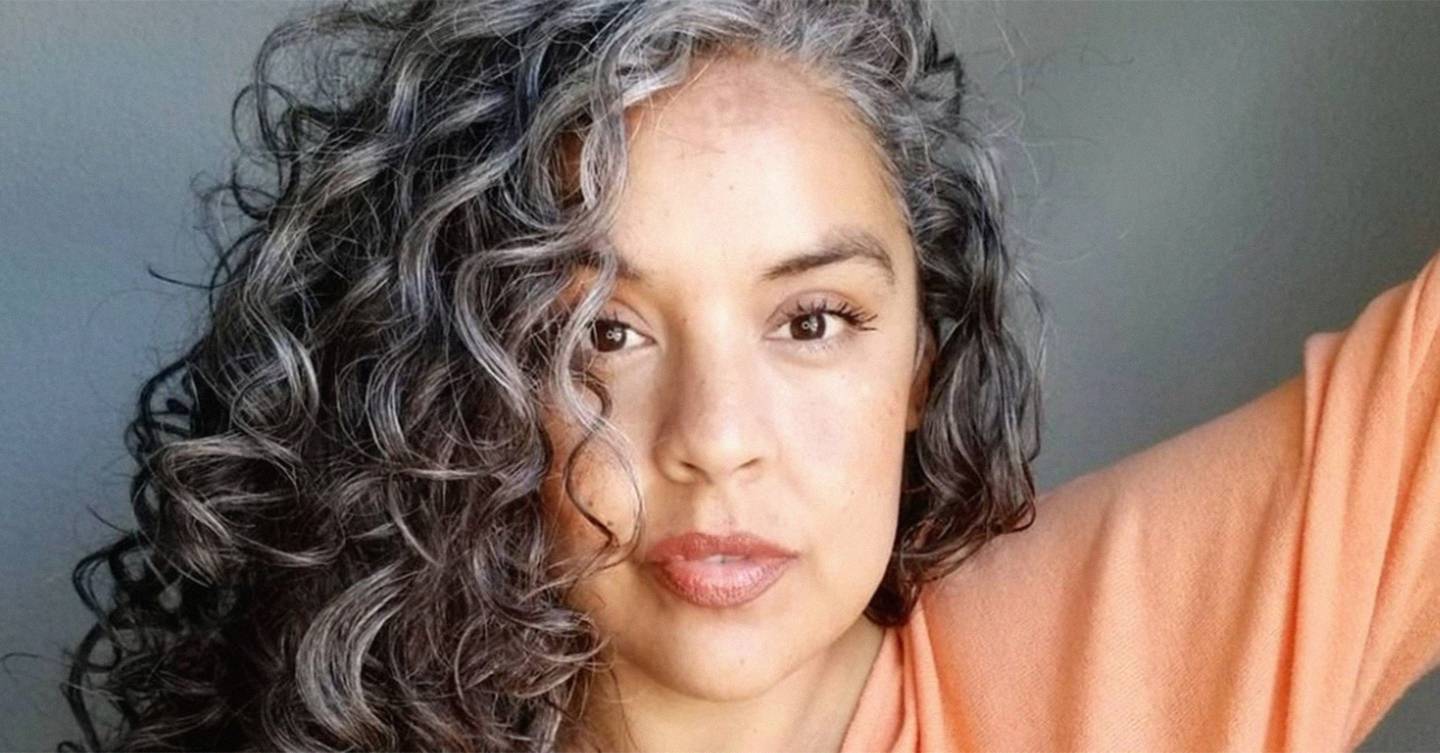We all know we’re likely to go grey at some point, but what’s less clear is why. Knowledge is power and when it comes to something as inevitable and natural as silver strands, we may as well brush up on the facts.
For starters, grey hair isn’t actually grey. “It’s white. It just appears grey as it is interspersed with pigmented hairs,” explains Anabel Kingsley, trichologist and president of Philip Kingsley haircare.
As for what causes white hair, when to expect it and what’s normal, we sat down with Anabel and Eleanore Richardson, Consultant Trichologist MIT at Fulham Scalp and Hair Clinic to understand more about our hair and its colour process.
What causes white hair?
“Premature greying is most commonly due to our genes as these determine how many pigment producing cells (melanocytes) we have available to us,” explains Eleanore. “At the end of each hair cycle our melanocytes are replaced from a finite number of stem cells, and after many hair cycles these can get used up and follicles are left with their pigment production depleted.”
That said our lifestyle and environment can contribute too. “They can speed up the inevitable process of greying by causing dysfunction of our melanocytes as a result of oxidative stress,” says Eleonore. In practice, this means “inflammatory changes in the body (high alcohol intake or smoking), psycho-emotional stress, UV light exposure, pollution and autoimmune diseases such as vitiligo or alopecia areata,” explains Eleonore. “Even the very act of producing melanin in our hair also results in oxidative stress,” she adds.
Is white hair normal?
“Completely normal! As the years go on everything in our body is ageing, so it’s unsurprising that our hair is part of this process too,” says Eleonore.
At what age does hair generally tend to turn white?
“People usually notice their first grey hairs in their early 30s,” says Anabel, “and on average, over half of our hair will be white (unpigmented) by our 50s. However, women and men can begin to turn grey as early as 18, while others experience their first white hairs much later in life,” she adds.
“On average it takes about 11 hair cycles for hair to start to turn grey, each hair cycle lasts about 3 years, so most people can expect to see some grey hair emerging by the time they are 33,” agrees Eleonore.
Are any people particularly predisposed to white hair?
“Everyone is likely to grey at some point,” Eleonore points out, “but genetics will often be the greatest hint at whether you are likely to grey early or be more likely to go grey.” A good indication is to consider your close family. “If your mother or father started getting white hairs at a young age, it is likely that you will as well,” explains Anabel.
“There are some groups that have shown to grey slower than others. Research points to women greying slower than men at the same age category and those from an African and Asian background greying less also,” says Eleonore. It’s not clear why that is but “it’s linked to inheritance and is also thought to be due to higher levels of melanin found in skin,” says Anabel.
Is there anything we can do to prevent white hair?
“To directly prevent white hair? No,” says Eleonore. “But can we improve the health of our melanocytes so that they are less likely to be impacted by oxidative stress? Of course,” she says. “Less alcohol, cigarettes and high sugar foods can help. Managing the emotional and psychological stress we encounter and endure on a daily basis is also important, but admittedly much trickier.”
What might be the reason for hair going white at a young age?
“The three most common causes for white hair at a young age are genetics, illness and stress. Genetic hair conditions such as poliosis or vitiligo can result in hair growing white from birth, whilst periods of high emotional/psychological stress can also cause premature greying,” says Eleonore.
“Pernicious anaemia and thyroid disorders can also cause premature greying,” adds Anabel. Meanwhile “when hair initially grows back after Alopecia Areata, it often comes in white, and then usually reverts to its usual pigmented colour,” she says.
“One of the reasons for this is because stress, illness and and improper diet can deplete your body of vitamin B,” explains Anabel – “and various studies have shown that a lack of vitamin B can turn hair white prematurely.”
For more from GLAMOUR’s Deputy Beauty Editor, Elle Turner follow her on Instagram @elleturneruk.
